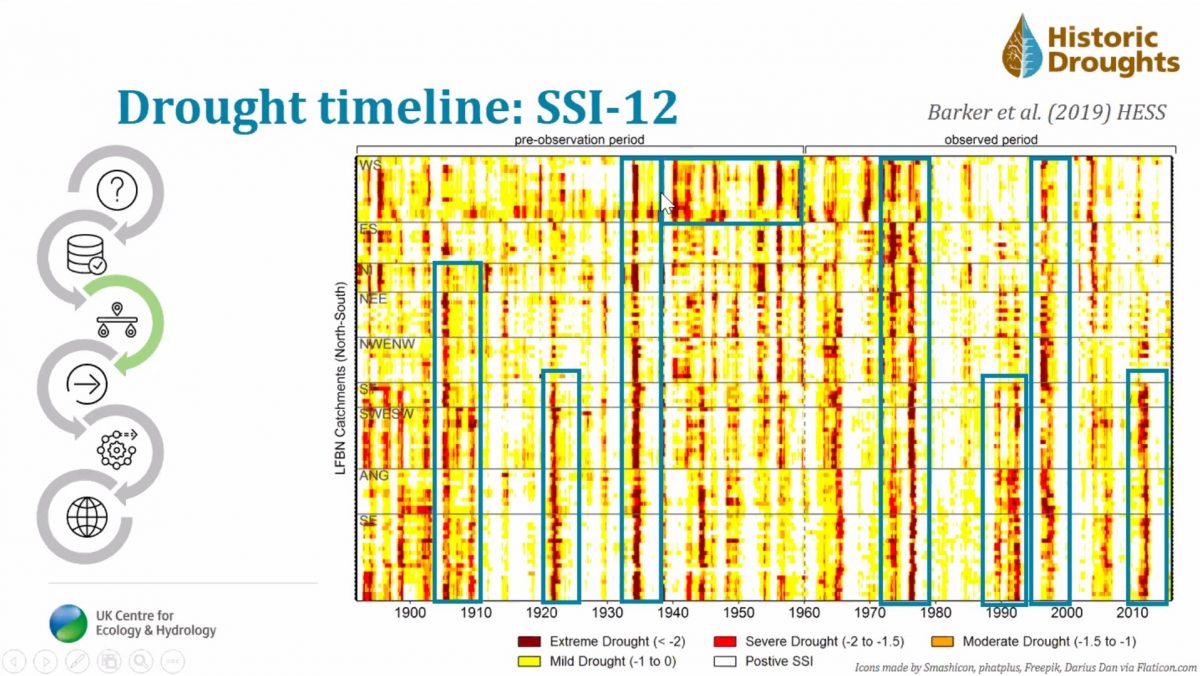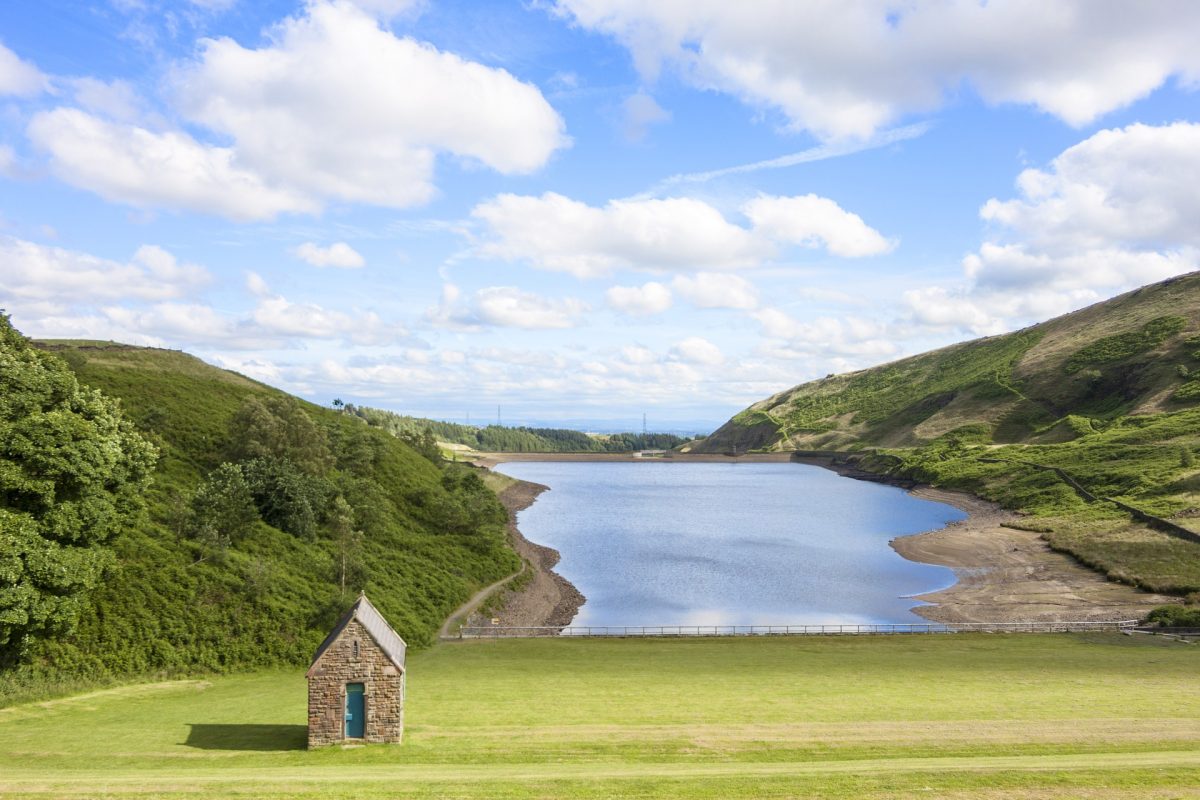Lucy Barker (UK Centre for Ecology & Hydrology) presents on a number of cutting edge aspects of drought science.
Climate change projections indicate that extreme events will increase in their frequency and severity in the future. An improved understanding of the drought events of the past can inform current and future management. In this talk, Lucy demonstrates how reconstructed river flows have enabled consistent, national scale characterisation of historic hydrological droughts and how access to current and historic data can support ongoing drought monitoring activities.
The work originates from a number of projects including Historic Droughts and the About Drought programme and you can view the talk below.
This talk is part of the British Hydrological Society webinar series, “Future Hydrology in a Changing Environment”. You can view past webinars on their YouTube channel.


